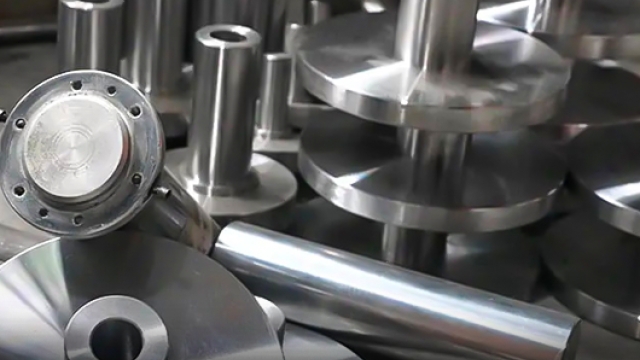 As the manufacturing sector continues to advance, the importance of Industrial Brush Making Technology becomes increasingly clear, highlighting the critical role that brush machines play in producing a diverse range of cleaning tools.
As the manufacturing sector continues to advance, the importance of Industrial Brush Making Technology becomes increasingly clear, highlighting the critical role that brush machines play in producing a diverse range of cleaning tools.
In the ever-evolving landscape of manufacturing, brush machines play a critical role in the production of a wide variety of cleaning tools. These machines are essential for the efficient and precise creation of brushes used in various industries, from household cleaning to specialized equipment. As the demand for high-quality brushes continues to rise, the materials and technologies used in brush machine manufacturing become increasingly important. Delving into these materials not only highlights the intricacies of the production process but also underscores the innovation and expertise required to produce reliable machines.
One standout in this field is Jiangmen Meixin Comb Brush Making Machine Manufacturing Co., Ltd. With 37 years of rich experience and technical accumulation, this professional company specializes in the production of advanced 2-5 axis machines. Their commitment to quality and innovation makes them a leader in the brush machine sector. Exploring the different materials used in the manufacturing of these machines reveals how advancements in technology and material science are shaping the future of brush production, allowing for more efficient, durable, and versatile machines that can meet the diverse needs of the market.
Overview of Brush Machine Materials
In the manufacturing of brush machines, the selection of materials plays a crucial role in determining the durability, efficiency, and overall performance of the machines. At Jiangmen Meixin Comb Brush Making Machine Manufacturing Co., Ltd., engineers focus on using high-quality metals and composites that can withstand the rigors of continuous operation. The most commonly used materials include stainless steel, aluminum alloys, and high-density plastics, which are chosen for their strength, lightweight properties, and resistance to corrosion.
Stainless steel is particularly favored for parts that require high durability and resistance to wear and tear. Its ability to resist rust makes it an ideal choice for components in brush machines that operate with moisture or in humid environments. On the other hand, aluminum alloys offer the advantage of being lightweight yet strong, making them suitable for moving parts where less weight is advantageous for performance and efficiency.
High-density plastics are also utilized for certain components to reduce the overall weight of the machines and lower production costs. These materials can be engineered to provide specific properties, such as flexibility or hardness, depending on the machine’s design requirements. As the industry evolves, the continual improvement and innovation in material technology will play a vital role in enhancing brush machine manufacturing processes.
Metal Components in Manufacturing
Metal components play a crucial role in the manufacturing of brush machines, ensuring durability and precision in the machinery’s operation. Common metals used include steel and aluminum, selected for their strength and resistance to wear during the production process. These materials are essential for parts like frames, shafts, and gears, which must withstand considerable stress while maintaining operational efficiency.
The choice of metal also influences the overall weight and portability of the machines. For instance, while steel offers superior strength, aluminum provides a lightweight alternative that can be ideal for smaller, more mobile brush machines. Jiangmen Meixin Comb Brush Making Machine Manufacturing Co., Ltd. has efficiently utilized these properties, optimizing their designs to enhance production capabilities while minimizing excess weight.
Additionally, the process of sourcing and fabricating metal components involves precision engineering and advanced manufacturing techniques. Techniques such as CNC machining and laser cutting allow for high accuracy and consistency, which is crucial for the assembly of 2-5 axis machines. This high level of manufacturing expertise, coupled with 37 years of industry experience, ensures that Jiangmen Meixin can produce reliable and efficient brush machines tailored to various production needs.
Plastics and Synthetics Used
In the manufacturing of brush machines, various plastics and synthetic materials play a crucial role in ensuring durability and efficiency. Commonly used materials include polypropylene and polyethylene. These plastics are favored for their resistance to moisture and chemicals, making them suitable for applications where brushes are exposed to diverse environments. The lightweight nature of these materials also contributes to the overall efficiency of the manufacturing process, as machines can operate more effectively with reduced weight.
Another important category of materials is nylon, which is often utilized in the bristles of brushes produced by machines. Nylon bristles are not only sturdy and resilient but also provide excellent performance in cleaning and scrubbing applications. Nylon’s flexibility and strength enable brushes to maintain their shape and effectiveness over time, enhancing the longevity of the products manufactured with these machines.
Additionally, manufacturers increasingly incorporate advanced synthetic materials like polyester and polyamide. These materials offer superior strength and wear resistance compared to traditional plastics. The use of these innovative materials allows for the production of specialized brushes that can withstand extreme conditions, making them ideal for industrial and commercial applications. As Jiangmen Meixin Comb Brush Making Machine Manufacturing Co., Ltd. continues to advance its technology, the integration of high-performance materials will be key to improving product quality and expanding production capabilities.
Innovative Materials in Brush Technology
The advancement of brush machine manufacturing has led to the exploration of innovative materials that enhance the performance and longevity of brushes. Lightweight and durable materials such as advanced polymers and composites are increasingly being utilized. These materials not only provide improved resistance to wear and tear but also enhance the brush’s ability to maintain its shape and functionality over time. Companies like Jiangmen Meixin Comb Brush Making Machine Manufacturing Co., Ltd. leverage these innovations to create machines that can handle these new materials effectively.
In addition to polymers, natural fibers are making a comeback as manufacturers seek sustainable options. Materials such as tampico, coconut coir, and horsehair are renowned for their biodegradability and unique cleaning properties. By incorporating these natural materials into brush design, manufacturers can appeal to environmentally conscious consumers while ensuring that their products perform exceptionally well in various applications. This shift towards sustainable materials reflects a broader trend in manufacturing, where ecological impact is taken into consideration.
Moreover, the integration of technology with material science has led to the development of brushes that incorporate antimicrobial and anti-static properties. These features are particularly important in sectors such as healthcare and electronics, where cleanliness and non-contamination are paramount. With Jiangmen Meixin’s extensive experience and technical expertise, the company is well-positioned to incorporate these cutting-edge materials into their machines, further pushing the boundaries of what is possible in brush manufacturing.
Future Trends in Brush Machine Production
As the brush machine manufacturing industry continues to evolve, there is a growing emphasis on automation and smart technology integration. Companies like Jiangmen Meixin Comb Brush Making Machine Manufacturing Co., Ltd. are at the forefront of this transformation, leveraging advanced robotics and artificial intelligence to streamline production processes. The incorporation of these technologies not only enhances precision and efficiency but also reduces labor costs and human error, paving the way for higher-quality end products.
Sustainability is also becoming a central focus in brush machine production. Manufacturers are increasingly looking to minimize their environmental impact by adopting eco-friendly materials and production techniques. Innovations in biodegradable and recyclable materials used in brush construction can significantly reduce waste and support global sustainability goals. Companies committed to environmentally responsible practices are more likely to attract eco-conscious consumers, thus creating a competitive advantage in the market.
Moreover, customization is set to play a pivotal role in the future landscape of brush machine manufacturing. With advancements in technology, manufacturers can offer tailored solutions that meet the specific needs of various industries. This shift towards personalized production not only enhances customer satisfaction but also leads to greater market diversification. As Jiangmen Meixin and other leaders in the field continue to adapt, the ability to provide specialized machinery for niche applications will likely become a significant trend driving growth and innovation in the sector.






